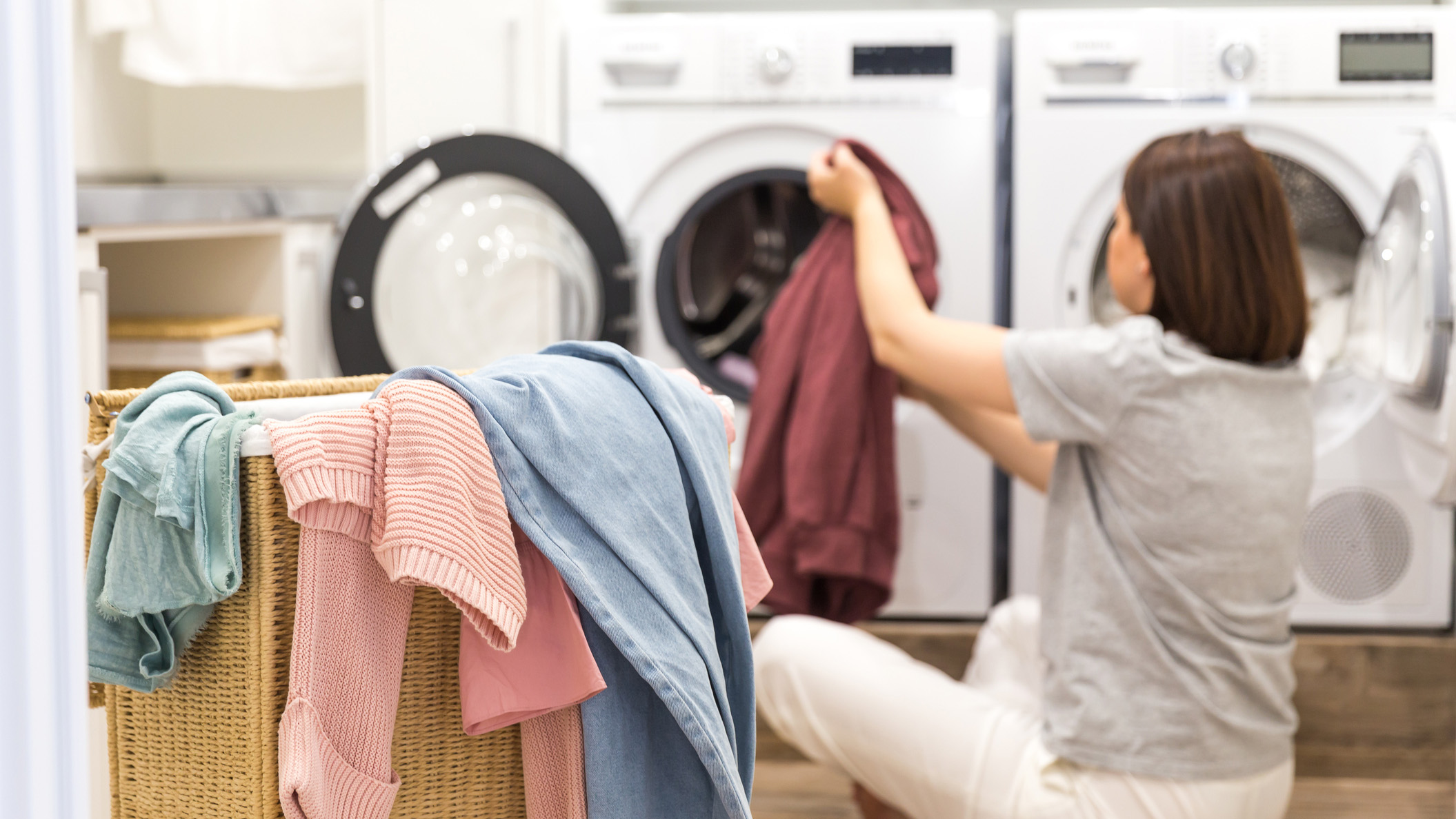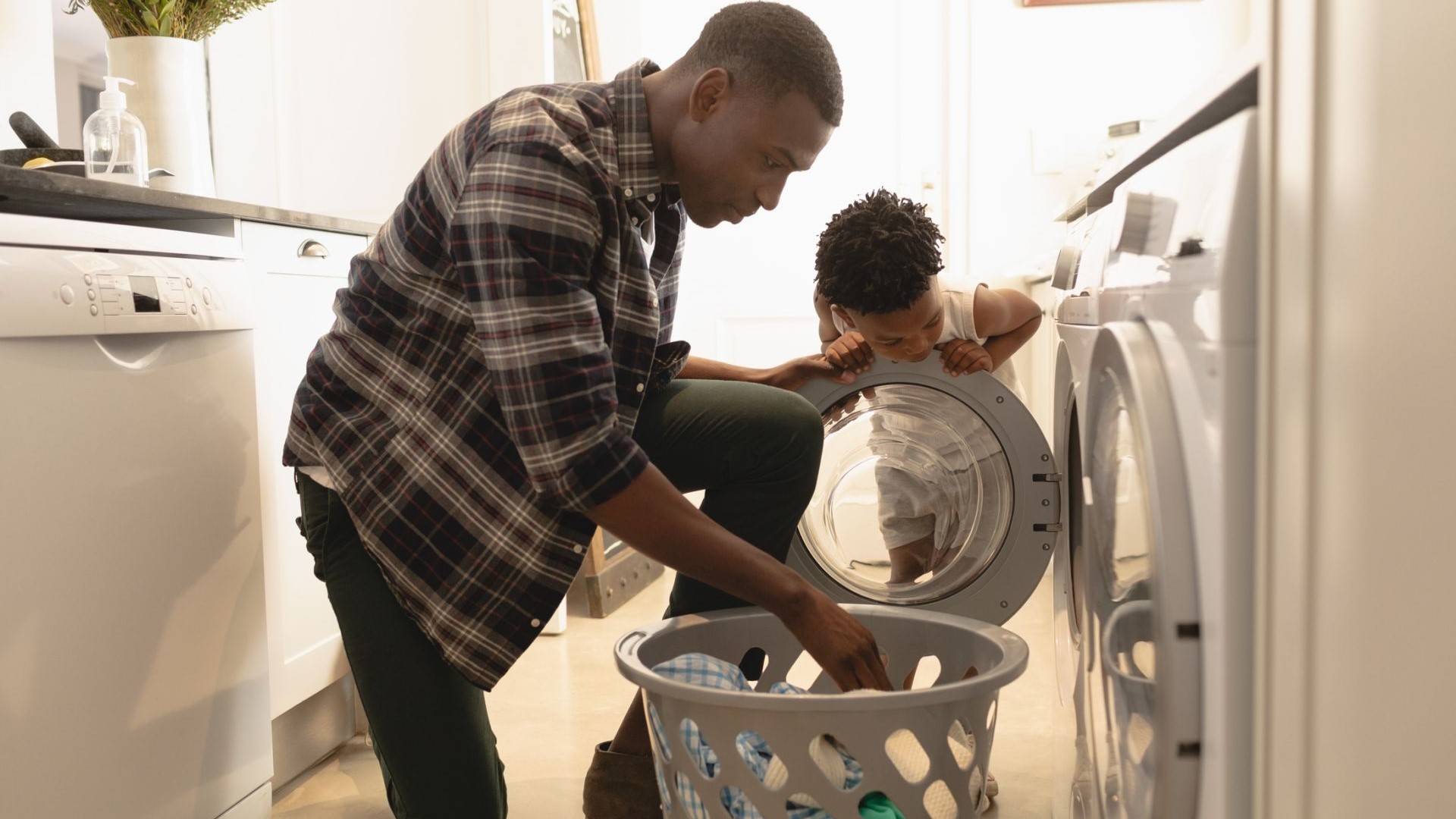Should I buy a high-efficiency washer?
Everything you need to know here

Sign up to receive the latest news, reviews, buying guides and deals direct to your inbox
You are now subscribed
Your newsletter sign-up was successful
High-efficiency washers are something we’re hearing more and more about - but what actually are they? And are they any better than traditional machines? We’ll give you all the information here.
If you’re in the market for one of the best washing machines, you’re bound to come across a range of high-efficiency washers. While we’re always on the lookout for ways to cut energy costs, the impact our appliances have on the environment is also becoming increasingly important to consider, too - and that’s where high-efficiency washers come in.
We’ll be explaining exactly what we mean by ‘high-efficiency’, talking you through the pros and cons of owning one of these machines, and even discussing the types of detergent needed for a high-efficiency model.
High-efficiency washers: What are they?
High-efficiency washers are simply washing machines that are more efficient than standard, traditional models. They use less electricity and water to complete a wash cycle, and they’re often front-loading washers. While traditional washers are normally more affordable, some are notoriously bad for guzzling energy and using lots of water.
Traditional top-load washers are the least efficient models you can buy, but since this type of appliance is still popular, manufacturers have made some big changes so that you can now purchase a high-efficiency top-loading model as well as a front loader.
The reason why traditional top-load washers are so poor in terms of efficiency is that they use an agitator. This is a central column that moves from side to side and rubs against your clothes. In order for these machines to work, the entire wash drum fills up with water, so the clothes are wet.
Modern washing machines don’t use agitators. Instead, they use an impeller, which you can think of as a wheel that spins the drum around so the clothes rub against each other until they are clean. This spinning motion is more efficient, and smaller amounts of water are spun around with the clothes, making it a better option for water usage, too.
Sign up to receive the latest news, reviews, buying guides and deals direct to your inbox

High-efficiency washers: How are they different?
High-efficiency washers will normally have larger capacities than traditional models, which means you can do fewer loads with larger amounts of laundry. As we’ve just covered, highly efficient options also use less water and less energy while they’re cleaning your clothes, but it’s very likely that you’ll pay more for an efficient option.
Because efficient machines don’t use an agitator, clothes are also not as likely to be damaged during the wash cycle - something a lot of people have issues with when their washer has an agitator.
Efficient models will have an Energy Star rating too. This is something that can only be awarded once a machine has been through a series of tests to see if it’s efficient enough to hit the Energy Star threshold. Again, you’ll pay more for an Energy Star rated model, but you will save in the long run on powering your machine.
Do high-efficiency washers need different detergents?
Washers have come a long way, and many modern and high-efficiency options will be able to handle all types of detergent; however, some perform powerful cleaning at lower temperatures and, therefore, cope better with liquid detergent rather than powder.
Some detergents require lots of water in order to clean the clothes, and if you don’t use the right kind of detergent in a washer, it’s very likely you’ll be left with suds on your laundry. Instead, you need to choose a detergent that can operate well with less water. Using the incorrect detergent can also shorten the lifespan of your machine.

High-efficiency washers - should I buy one?
Reviews
Whirlpool 24" Stainless Steel AI Dishwasher Review
Napoleon TravelQ PRO285 Portable Gas Grill review
Dreame L40 Ultra Robot Vacuum Cleaner and Mop review: almost hands-free cleaning
GE Profile Smart Mixer with Auto Sense review: a powerful, thorough mixer
Echo eForce DPB-2500 review: a leaf blower as a snow removal tool?
DPAS-2100 + Pro Paddle Attachment review: a new way to remove snow this winter?
Midea MAD53109APK 5.5QT Air Fryer review: a small, simple, and highly effective option
Eureka J15 Pro Ultra Robot Vacuum review: hands-free cleaning for busy families
There are so many benefits to having a high-efficiency washing machine. Not only will your energy costs be lower, but you’ll also be doing your bit to reduce the impact on the environment, and your clothes will be less susceptible to damage from a traditional agitator.
Just be prepared to pay a little more than you would for an older, traditional model, and consider which detergents you buy, too.
Sophie is Home Editor at Top Ten Reviews. Starting off her career in print journalism, Sophie then moved to digital and now specializes in lifestyle, home interiors and social media. While she has scooped awards for her journalism, Sophie likes to whip up a storm in the kitchen when she's not writing.

